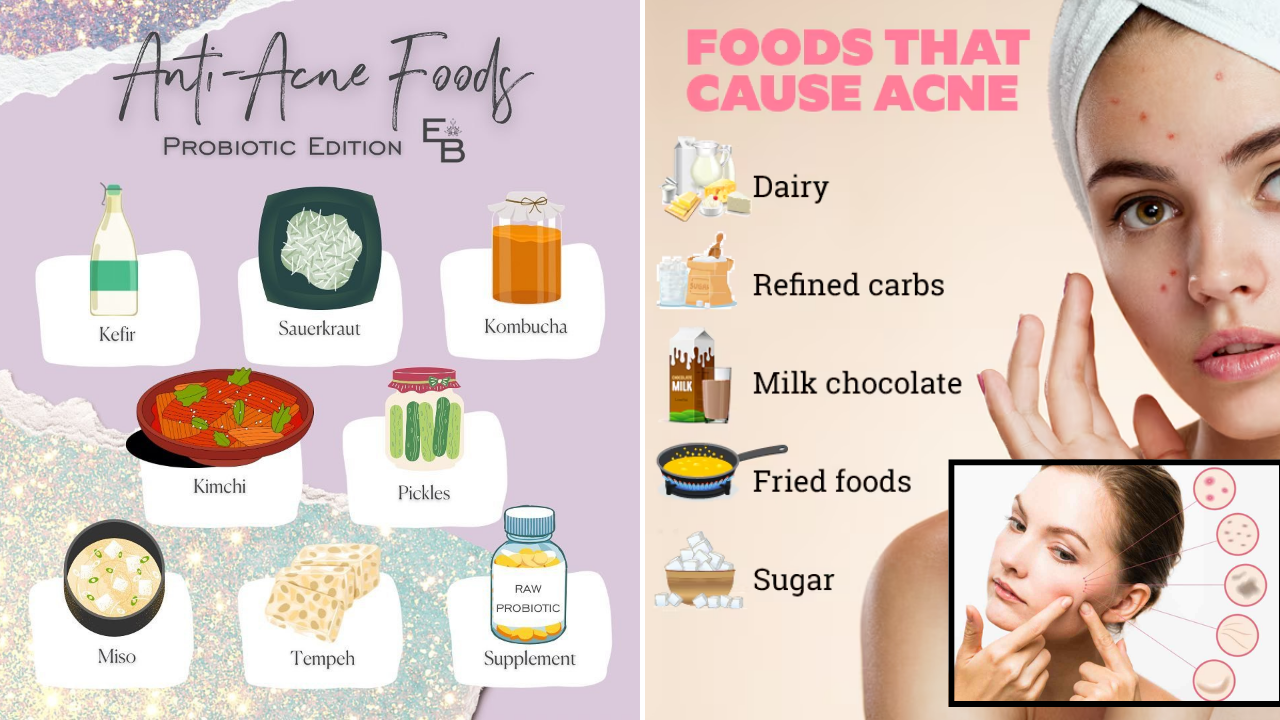Hello! Acne is a common skin condition that affects many people, from teenagers to adults. If you’re wondering whether you have acne and want to find ways to get rid of it, this article will provide helpful information for understanding acne and effectively treating it.
What is Acne?
Acne forms when the oil glands under the skin become overactive, clogging the pores. When bacteria enter, it causes inflammation, resulting in red pimples, blackheads, whiteheads, and pustules. Acne can appear in various areas of the body, such as the face, back, chest, and shoulders.
Causes of Acne
Several factors contribute to acne, including:
- Hormones: Hormonal changes, especially during puberty, before menstruation, or pregnancy, can increase oil production on the skin.
- Genetics: If your parents have had acne, your chances of having acne are also higher.
- Diet: Some studies suggest that foods high in sugar and dairy products may increase the risk of acne.
- Using unsuitable products: Skincare or cosmetic products that contain oils can clog pores and cause breakouts.
Acne Treatment Methods
- Daily Skincare Routine:
- Cleansing: Use a gentle, soap-free cleanser to wash your face every morning and night. Avoid over-washing, as it can disrupt the skin’s balance.
- Using toner and moisturizer: After cleansing, apply toner to balance the skin, followed by an oil-free moisturizer to keep the skin hydrated without clogging pores.
- Avoid Touching Your Face:
- Bacteria from your hands can transfer to your face, increasing the risk of infection. Avoid touching your face and refrain from popping pimples, as it can damage the skin and leave scars.
- Using Acne Treatment Products:
- Products containing benzoyl peroxide or salicylic acid can help reduce inflammation and clear pores. Start with a low concentration and gradually increase to avoid irritation.
- Retinoids: Retinoid products like tretinoin can help regenerate skin and reduce acne effectively. However, they can cause irritation and should only be used under a doctor’s guidance.
- Adjust Your Diet:
- Eat more green vegetables, fruits, and fiber-rich foods to help detoxify the body. Limit high-sugar foods and dairy, as they can increase oil production and cause breakouts.
- Drink enough water daily to keep your skin hydrated and support the detox process.
- Reduce Stress and Maintain a Healthy Lifestyle:
- Stress can increase cortisol levels in the body, causing oil glands to become more active and triggering acne. Try exercises like yoga, meditation, and ensure you get enough sleep daily to allow your body to recover.
When to See a Doctor?
If you’ve tried multiple methods but your acne isn’t improving or is worsening, visit a dermatologist. A doctor may prescribe medication or suggest treatments like laser therapy, chemical peels, or light therapy to improve your skin.
Conclusion
Getting rid of acne isn’t easy, but with a proper skincare routine, lifestyle adjustments, and perseverance, you can control and improve your skin. Most importantly, be patient and listen to your body. If you’re unsure whether you have acne, don’t hesitate to seek advice from specialists for professional guidance.
